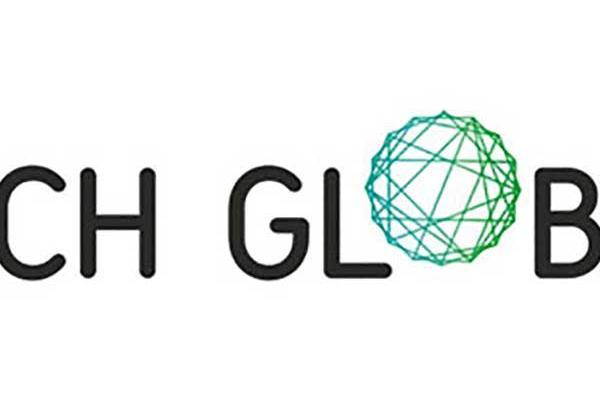According to a New York Post article, only 8 percent of people achieve their New Year’s goals. 8 Percent.
But let’s turn that number around. We continue to strive to meet our goal in providing excellent education opportunities so you can start, change or advance your career—or get ready to be a competitive applicant to graduate school. For our students, their goals may be to figure out what field they want to study, landing that dream job or getting the interview.
So here are our grads’ Top 5 goals you can stick to all-year-round.
Set Up an Informational Interview
You may be interested in a certain position, but not quite sure what it is all about. Informational interviews are a great way to get the details. Many employers enjoy speaking with prospective applicants and sharing what their company is all about. On top of that, you will be a stand-out candidate because you took the time to get to know the company!

What to Think About: “Informational interviews are structured conversations to gain knowledge about a career field, not to make network connections or to apply for a particular job. So when reaching out to someone to learn about his/her area of expertise, be honest and upfront about your intentions. Be prepared with a 30-second professional introduction about your experience. What direction are you interested in exploring? Why is that appealing to you?”
—Terrie Moore, Career Counselor at UC Berkeley’s Staff Career Development Program

How It Pays Off: “During an informational interview with an MD Anderson scientific editor, I mentioned off-hand that I loved editing, and she replied, ‘The world has too few good editors.’ Bingo. Her words carved out a new passage for me: editing—an evidence-based skill.”
—Stephanie Martch, Senior Writer at MD Anderson
Get more tips on setting up your next informational interview.
Finding Resources in an Online Environment
Moving toward an almost completely remote work and study lifestyle is definitely something many have to get used to. But that means there are more and more accessible resources out there to gain and improve your skills for your future job. Sure, take a class or two. Volunteering, speaking with someone in the field, et cetera, are all great ways to get practice!

Utilize LinkedIn: “My BHGAP career coach Heidi Weller said ‘Use LinkedIn as a tool in your career. You will have the world to answer any questions you may have. People are open to helping other in their career.’”
—Isha Aggarwal, Founder of Svante Group

Improve Your Skills In Your Field: “Being able to establish a relationship with my professors and having one of them write a letter of recommendation that could speak to my academic abilities was probably the biggest strength in my application.”
—Tiffany Kim, Post-Baccalaureate Program for Counseling and Psychology Professions Graduate

Build Up Your Resumé: “Volunteer early on if you think you want to enter medicine. Graduate programs want applicants to have clinical experience because the day-to-day reality of medicine is much more social than the classroom material lets on.”
—Jayinee Basu, Graduate Student at the Touro University College of Osteopathic Medicine

Discover Your Passion: “Certifications hone your skills and help define areas you may not know you love, refine areas you need to stretch and give you foundational knowledge.”
—Terri Lynn Cardona, HR Consultant at Stone Soup Performance Consulting
Learn From Your Peers
Instructors are not the only people you can learn from. Your classmates are a crucial part of the learning process. With so many cultures, generations and backgrounds coming together in our classrooms—both in person and online—you have the opportunity to hear new perspectives.

Incorporating This Into Your Studies: “I took my classes online, and there were a few classmates who were also international. I learned a lot from my peers: Many were at the same point in their career as I was. Their experiences helped to nail down the theory we were processing. It also opened my eyes to many other industries and how they applied their project management framework to their projects.”
—Toby Atawo, Director of Construction Services, AJH Construction, LLC

Group Projects Can Be Fun! “I did most of my courses online, but I still enjoyed working with other students via online group assignments. I worked with other students to complete group projects. I was impressed by how dedicated and reliable the other students were. It made the process enjoyable, and our coursework products high-caliber.”
—Mark Summers, Moraga Public Works Department
Networking: A Job in Itself
Who said networking had to be solely in person?! Video calls, emails and LinkedIn are other key ways to connect and communicate with people in the field.


At the Heart of Silicon Valley: “When I arrived at UC Berkeley Extension, I heard that it was important to interact and network with people in the Bay Area. Also be open-minded and you will have the best experience!”
—Roberta Tanajura, Professional Certificate Program in Entreprepreneurship Alumna

How It Pays Off: “What I thought was an inconsequential interaction with someone turned into an opportunity a few years later when I was looking for a job. Always network, even in places you’d least expect to.”
—Sam Kushner, M.S.W. Graduate Student at University of Southern California
More tips on expanding your professional network.
Work/Life/Study Balance
Now more than ever, it’s important to keep up with your mental and physical health. As many of us are glued to our email and Zoom meetings, it is easy to forget to take a step back and breathe.
Find A Schedule That Works For You:

—Matt Klinkel, Post-Baccalaureate Health Professions Program Graduate

Time Management is Key: “When I think back to taking my science courses and juggling that with studying for the MCAT, the Extension courses taught me how to manage high-stress situations. My master’s program taught me resiliency techniques and I’m using those tools to recharge myself. And the combination of those experiences has helped me navigate a challenging year in the industry.”
—Dylan Blackburn, Project Manager at Virginia Mason Medical Center
Read more ways to find your work/life/study balance!
What resolution do you plan on making—and sticking to!—in 2021? Let us know in the comments below.



